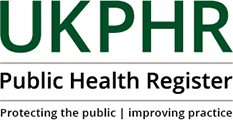UKPHR’s Education & Training Committee’s first Annual Report (2019)
By Helen King, Chair of UKPHR’s Education & Training Committee
I am pleased and proud to present the UKPHR’s Education & Training Committee’s first Annual Report (2019).
In the Committee, we hold a great deal of information about registration of the public health workforce which partner organisations and the public may find useful.
Our intention on the Committee is to make this Annual Report a regular publication containing information from the same subject areas annually. Over time, we very much hope that some valuable insights will come out of this work and those who have responsibility for workforce panning will be able to see emerging trends and respond accordingly.
The register was born in 2003 and what our 2019 report shows is that it is only in recent times that the number of registrants has passed 1,000 in total.
At 761, the number of specialists on our register probably equates to one-half, or thereabouts of all specialists currently working in public health in the UK. Specialists provide public health’s strategic leadership, so it is reasonable to suppose that overall there is a much larger workforce of practitioners fulfilling a variety of roles contributing to delivery of public health services, from commissioning and managing through to front-line delivery.
When the Centre for Workforce Intelligence (CfWI) researched the practitioner workforce in England (2014), it estimated a workforce of approximately 50,000. Once those who are already registered elsewhere (for example, nurses, health visitors and midwives) were stripped out, the CfWI estimated that there were 10,000 unregistered practitioners. Given that in 2019 we identified that UKPHR registered 458 practitioners, it seems clear that there is a long way to go before this practitioner workforce is entirely covered by appropriate regulation.
Going forward, UKPHR’s introduction of revalidation will provide further information about how registrants maintain and enhance their competence and quality of service after they have achieved registrations. We are keen to stress that regulation is more than a mechanism for responding to concerns about incompetence and misconduct. We push for continuous improvement of practice, as our requirements for Continuing Professional Development (CPD) demonstrate.
From this first Annual Report, our Committee has identified that a significant number of specialists are close to retirement. On the other hand, there is a strong entry of new, younger specialists onto the register. These observations suggest that bringing on specialists in readiness for Consultant and Director of Public Health appointments should be a system-wide preoccupation as well as a matter for UKPHR’s attention.
Our Committee noted that Northern Ireland remains barely touched by registration and we will consider how to improve our visibility and make the case for registration in Northern Ireland. We also noted the relatively low numbers for registrants from some ethnic backgrounds and we will look into this during the year ahead.
Do please read the Education & Training Committee’s Annual Report 2019.
I would be delighted to receive your feedback at register@ukphr.org



Comments are closed.